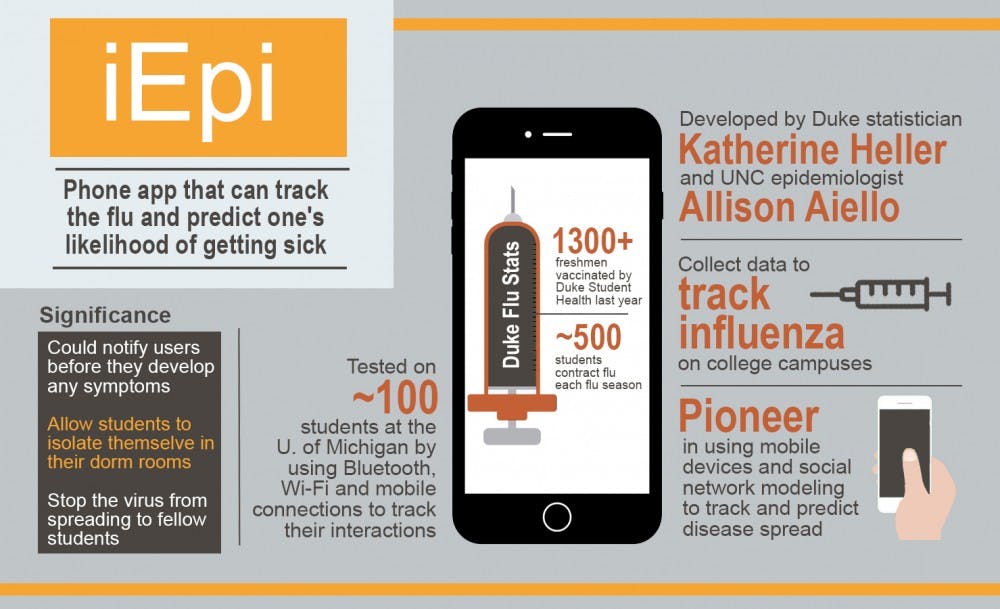This flu season, students’ chances of staying healthy may get a boost from an unexpected source—their cell phones.
Researchers at Duke and the University of North Carolina at Chapel Hill have developed a cell phone application—called iEpi—that tracks the spread of the disease and predicts the likelihood of contracting it. The researchers—Duke statistician Katherine Heller and UNC epidemiologist Allison Aiello—tested the app with a group of approximately 100 students at the University of Michigan, using Bluetooth, Wi-Fi and mobile connections to track the students’ social interactions. Using this data, along with personal information such as smoking habits, the team developed a model that allowed them to predict the daily spread of influenza between study participants. iEpi represents one of the first times mobile devices and social network modeling have been used to track and predict the spread of disease.
“Our ability to collect and analyze this kind of data—in terms of trying to improve health outcomes—is really, really important,” said Heller, assistant professor of statistical science at Duke.
This method of data collection is especially important for tracking influenza on college campuses. The ubiquity of mobile devices makes collecting data easy, Heller said.
She added that the flu tends to thrive on college campuses because students live, eat and attend class in close proximity to each other.
Kai Fan, a third-year doctoral student who was part of Heller’s team, added that closed communities—groups of people that interact almost exclusively with each other—are ideal for this kind of modeling. But this exclusivity also places limitations on the model, as outsiders whose interactions are not recorded by the iEpi app can introduce the flu in an unpredictable way.
Flu prevention is taken seriously at Duke, said Jean Hanson, associate director of outreach at the Duke Student Wellness Center. She noted that the Duke Student Health Center sponsors prevention methods such as immunization and hand washing campaigns—including last year’s “flu fighter” campaign, which vaccinated more than 1,300 freshmen.
In recent years, about 500 students have gotten influenza each flu season, Hanson said, though this number refers only to cases that Student Health was made aware of.
Apps like iEpi could considerably aid Student Health’s efforts to stem the annual flu outbreak on campus. Because iEpi can predict when a person is likely to contract the flu, it could potentially be used to notify users that they are at risk even before they start to develop symptoms. Students could then isolate themselves by staying in their dorm rooms, which would stop the virus from spreading to fellow students.
Although iEpi cannot directly stop the flu like an immunization can, Hanson said she welcomes new approaches.
“Anything that you can do to prevent illness in a college population should be done,” she said.
Abigail Xie contributed reporting.
Get The Chronicle straight to your inbox
Signup for our weekly newsletter. Cancel at any time.

